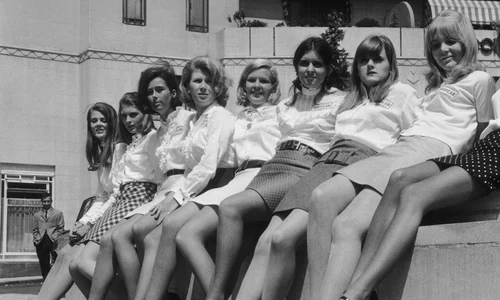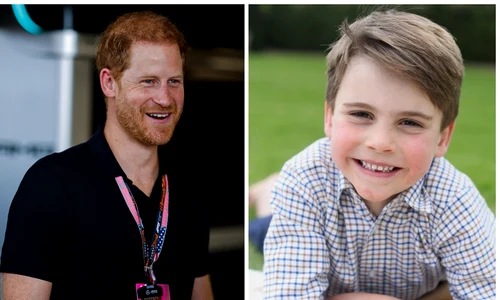
The King Has Abdicated. Long Live the King! Who is Juan Carlos I?
King Juan Carlos I shocked the Spanish people and the whole world when he announced his decision to abdicate in the favour of his son Felipe, Prince of Asturias. The Spanish monarch chose to relinquish his position after a long reign which was comprised of both positive and negative events. His health problems as well as the scandals which caused damage to the Royal Family were the grounds of this dramatic decision.
Juan Carlos Alfonso Victor María de Borbón y Borbón-Dos Sicilias was born on January 5th, 1938 in Rome. He is one of the four children of the Infant Juan, Count of Barcelona and Princess María de las Mercedes de Borbón-Dos Sicilias. His family fled to Italy when the Second Spanish Republic was established in 1931.
His father managed to determine Franco to allow Juan Carlos to move to Spain in 1948 at the age of 10, in order to finish his education. The future King started studying at San Sebastian and finished the studies at the San Isidro Institute of Madrid. He spent the period between 1955 and 1957 at the Military Academy in Zaragoza where he finished his military service.
In 1956, Alfonso – Juan Carlos’ brother – died in an accident where a weapon was involved. The official communiqué of the Spanish Embassy in Portugal (where the Royal Family was exiled) said that Alfonso was cleaning his revolver when he shot himself accidentally. However, the press speculated that Juan Carlos was guilty of his brother’s death and that he was one who shot him.
The future King spent a year at a Naval School and another one at an Aviation College. He studied Law, International Economy and Public Finance at the Complutense University.
The Dictator Francisco Franco chose Juan Carlos as the heir to the throne of Spain. This was a compromise to the extreme right factions which asked for the monarchy to be reinstated. Yet, Franco did not wish for the Royalty to re-establish democracy and hoped that the young Juan Carlos could be groomed so as to retain some of the elements of his dictatorial regime. In 1969, Juan Carlos officially became the heir and he was awarded the title of Prince of Spain. In return, the future King was supposed to swear loyalty to Franco’s political mechanism.
Therefore, Juan Carlos alarmed the opposition by publicly supporting Franco’s regime during the years 1969 – 1975. The Spanish opposition found its hopes shattered that after Franco’s death the regime would change for the better.
Yet, while Franco’s death became even frailer as time passed, Juan Carlos secretly negotiated with exiled political leaders who did not share Franco’s political beliefs. Even though some members of the Spanish Government warned Franco of the Prince’s duplicitous behaviour, he refused to believe that Juan Carlos betrayed him. Thus, he was tricked until the very end.

The Prince ruled the country between 1974 and 1975, since Franco was unable to do so. Before he passed away on October 30th, 1975, the dictator left full powers to Prince Juan Carlos. On November 22nd, Carlos was proclaimed King of Spain and his coronation took place on November 27thduring a ceremony in a church in Madrid. The Monarch could have taken on the name Juan III or Carlos V, yet he preferred to be Juan Carlos I.
At that point, King Juan Carlos had the freedom to implement certain reforms. Firstly, he legalized the Spanish Communist Party, in spite of the rightist military opposition. Thus, the monarchy ensured that it would have a firm support from the left.
On June 15th, 1977, Spain saw the first democratic elections since the fall of Franco’s regime. In 1978, the Government promulgated a constitution which was democratically chosen by the Parliament and ratified in a public referendum. The Constitution recognized Juan Carlos as the King of Spain and was credited as the heir of the Spanish Royal House and not of Franco’s.
In order to pacify those who considered him the first heir to the throne of Spain, Infant Juan relinquished his rights to the throne and confirmed his son’s investiture.
Yet, his status as the hero of Spanish state was fully established on February 23rd, 1981 when he managed to prevent a coup d’état. King Juan Carlos decided to act:in a tv message and wearing a military uniform, he ordered the Civil Guard officers involved in an attempted coup d’etat to return to their barracks. Under lieutenant colonel Antonio Tejro’s command, the officers occupied the building of the Parliament.
In 1982, the socialist leader Felipe González was elected as the Prime Minister of Spain. Since then, Juan Carlos decided not to be actively involved in the country’s politics, yet he remained a symbol of power.
As for his family life, Juan Carlos married Princess Sofia of Greece and Denmark in Athens on May 14th, 1962. They have three children:Infantas Elena and Cristina and the future king, Felipe.
The King underwent an operation in 2010 in which a tumor was removed from his right lung. Yet, his problems did not stop there. His son-in-law, his daughter Cristina’s husband-Iñaki Urdangarín – was allegedly involved in a corruption scandal where he was accused of state embezzlement.

In April 2012, Juan Carlos went hunting for elephants in Botswana. The newspaper El Pais estimated that the King spent almost 44.000 euros to take part in the hunt, while his country was in a severe economic crisis which brought the lowest employment rate in the history of the country. In Botswana, he tripped and suffered a triple hip fracture. After the operation, he declared that he made a mistake which he intended not to repeat.
Juan Carlos decided to relinquish the throne, in order to save the Spanish Monarchy and since his son, Felipe, enjoys a very discreet life and lately, has been more and more involved in the Spanish politics. Spanish citizens believe this is a positive change and think that it was very necessary to revitalize the monarchy.















